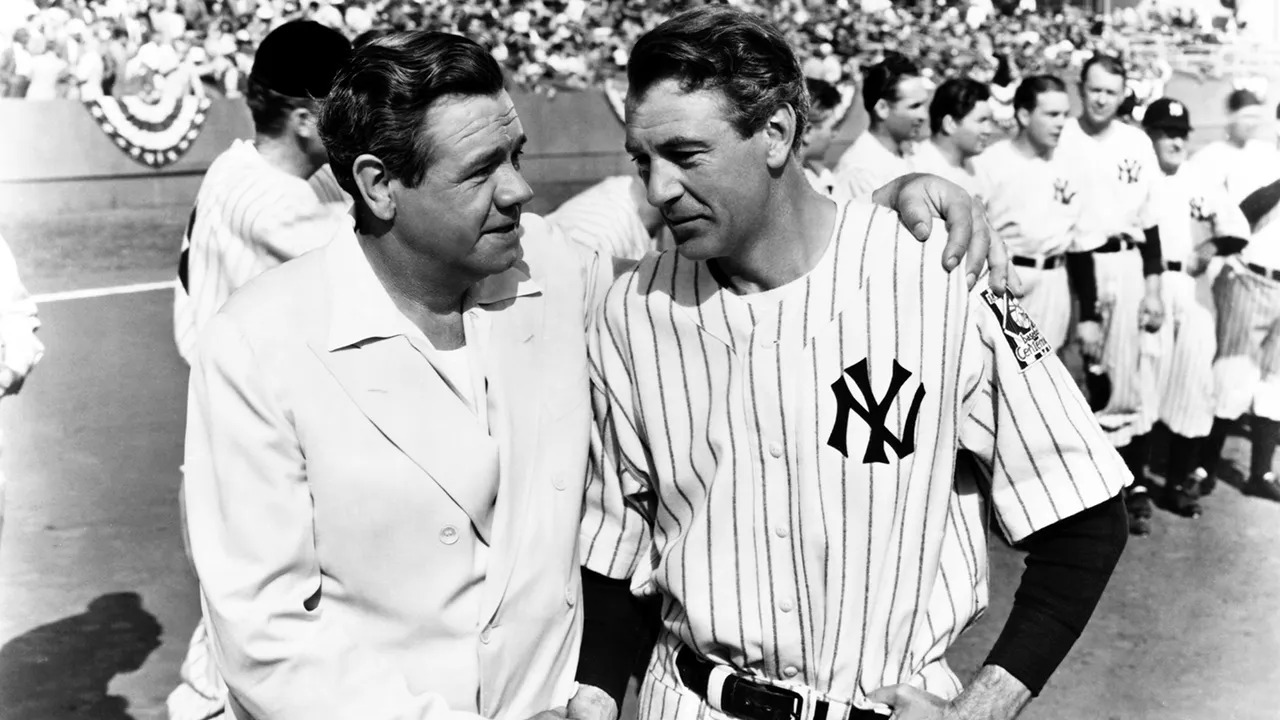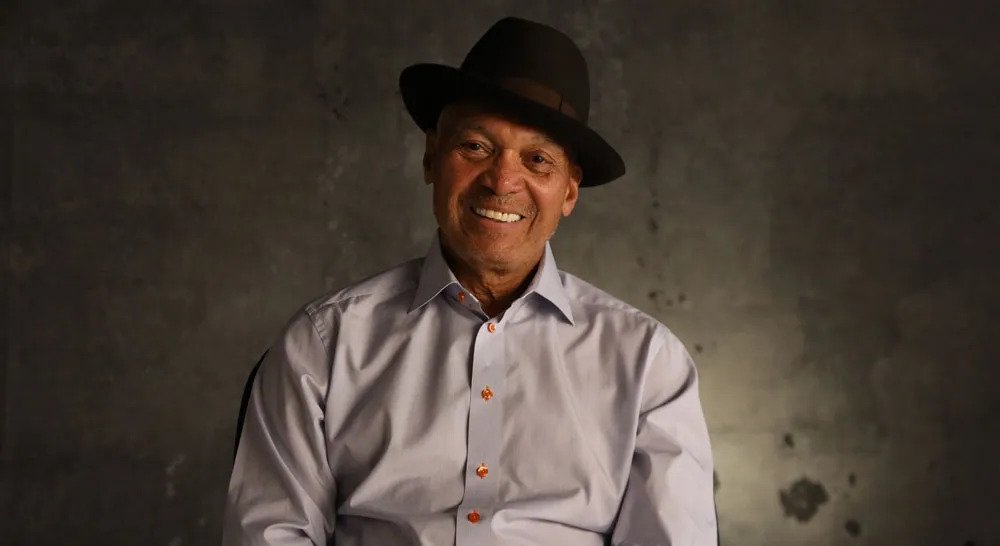We all know how this story ends, even if we don’t know the details.

Released not that long after Lou Gehrig died, The Pride of the Yankees (1942, directed by Sam Wood) is less of a biopic and more of a tribute. I don’t really see anything wrong with that. Certainly, it presents Gehrig as a really decent, loving person, but the movie is sensitive and kind. My two complaints are that Gary Cooper looks a bit too old to be a college student early on (he was already in his 40s) and it’s maybe a touch too long.
Cooper doesn’t make Gehrig out to be any sort of saintly figure, but just a man who is genuinely good. Yes, he gets into a fight in college but that was only because his fraternity brothers were cruelly mocking him. Yes, he lied to his mother about why he was leaving town — letting her believe he was going to Harvard when he was actually playing baseball — but that was only to pay for her medical care.
Teresa Wright brings a bright, playfulness to Eleanor, Gehrig’s eventual wife, and she has great chemistry with Cooper. They’re cute together and their love seems based on both sexual attraction and mutual respect. Their relationship was my favorite part of the movie.
In terms of filmmaking, there isn’t much of note, although the editing (for which it won an Oscar) is excellent. Each scene is as long as it needs to be, and so while parts may feel a little jumpy, it does keep things moving. The filmmakers knew when to ramp up the sports action and when to slow down for more intimate scenes. It captures what life often feels like.
The baseball scenes are good, too, and use some clever editing — Cooper swinging a bat in a close shot, then wider field shots to show the effect. It’s a movie that’s very much tied to baseball so I appreciated the movie showing quite a bit of it.
Gehrig’s disease is handly with sensitivity and the movie doesn’t dwell on it too much. I liked that it respected the audience to know what was happening.
The movie concludes with Lou Gehrig Day and Gehrig making his famous speech and then quietly walking off the field into the shadows. It’s maybe a bit sentimental and maudlin, but I appreciate that this is how the movie wants Gehrig to be remembered. He’s not someone who’s dying but he’s “the luckiest man on the face of the earth.”
This is a classic baseball movie for a reason and I’m glad I finally saw it.




